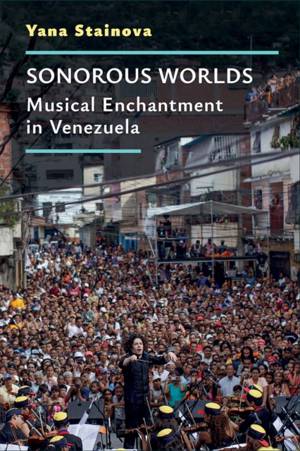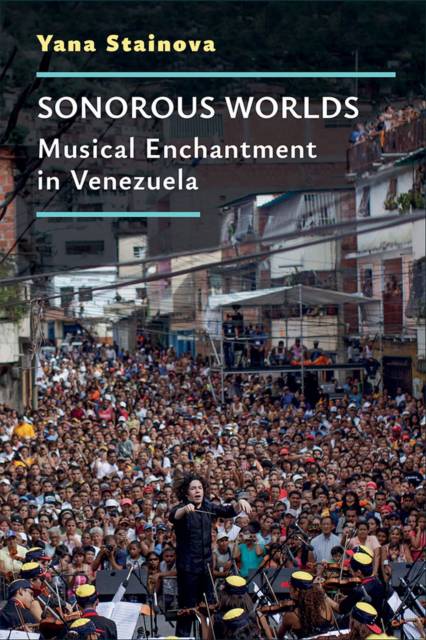
- Afhalen na 1 uur in een winkel met voorraad
- Gratis thuislevering in België vanaf € 30
- Ruim aanbod met 7 miljoen producten
- Afhalen na 1 uur in een winkel met voorraad
- Gratis thuislevering in België vanaf € 30
- Ruim aanbod met 7 miljoen producten
Zoeken
Omschrijving
El Sistema is a nationwide, state-funded music education program in Venezuela. Founded in 1975 by economist and musician José Antonio Abreu, the institution has weathered seven jolting changes in government. Hugo Chávez and, after his death, president Nicolás Maduro enthusiastically included the institution into the political agenda of the socialist project and captured the affective power of music for their own aims. Fueled by the oil boom in the 2000s, El Sistema grew over the years to encompass 1,210 orchestras for children and young people in Venezuela, reached almost 1 million people out of the 30 million in the country, and served as a model in more than 35 countries around the world. Sonorous Worlds is an ethnography of the young Venezuelan musicians who participate in El Sistema, many of whom live in urban barrios and face everyday gang violence, state repression, social exclusion, and forced migration in response to sociopolitical crisis. This book looks at how these young people engage with what the author calls "enchantment," that is, how through musical practices they create worlds that escape, rupture, and critique dominant structures of power. Stainova's focus on artistic practice and enchantment allows her to theorize the successes and failures of political projects through the lens of everyday transformations in people's lives.
Specificaties
Betrokkenen
- Auteur(s):
- Uitgeverij:
Inhoud
- Aantal bladzijden:
- 280
- Taal:
- Engels
- Reeks:
Eigenschappen
- Productcode (EAN):
- 9780472132737
- Verschijningsdatum:
- 14/10/2021
- Uitvoering:
- Hardcover
- Formaat:
- Genaaid
- Afmetingen:
- 155 mm x 231 mm
- Gewicht:
- 458 g

Alleen bij Standaard Boekhandel
+ 170 punten op je klantenkaart van Standaard Boekhandel
Beoordelingen
We publiceren alleen reviews die voldoen aan de voorwaarden voor reviews. Bekijk onze voorwaarden voor reviews.











